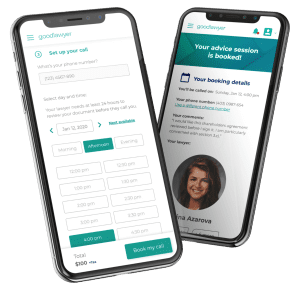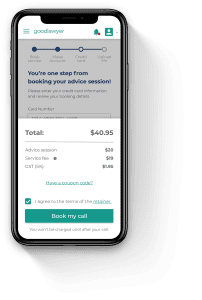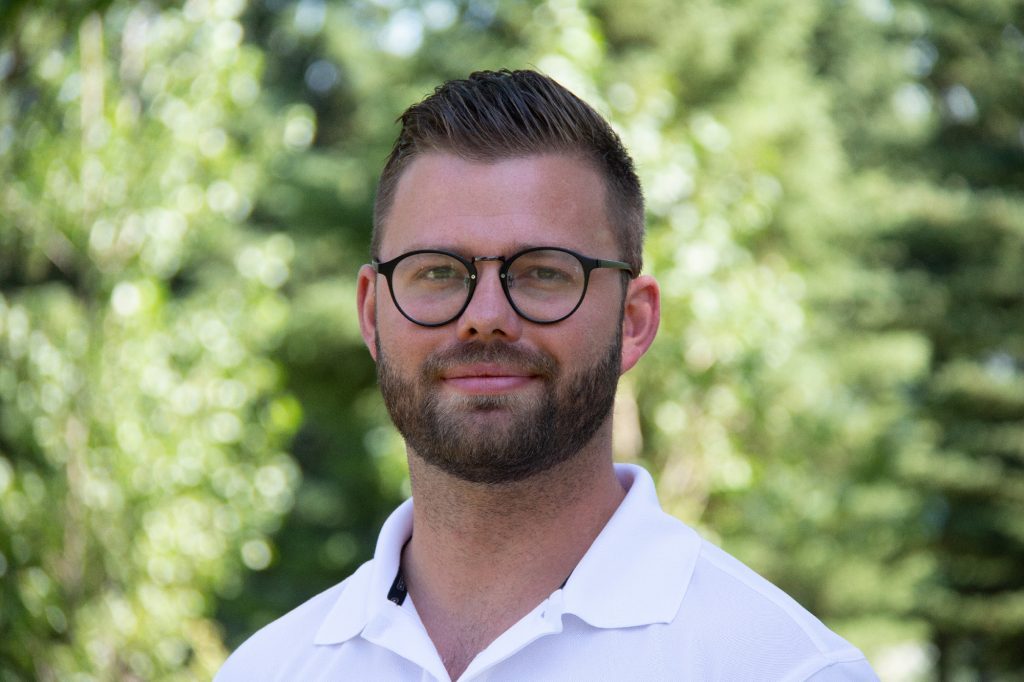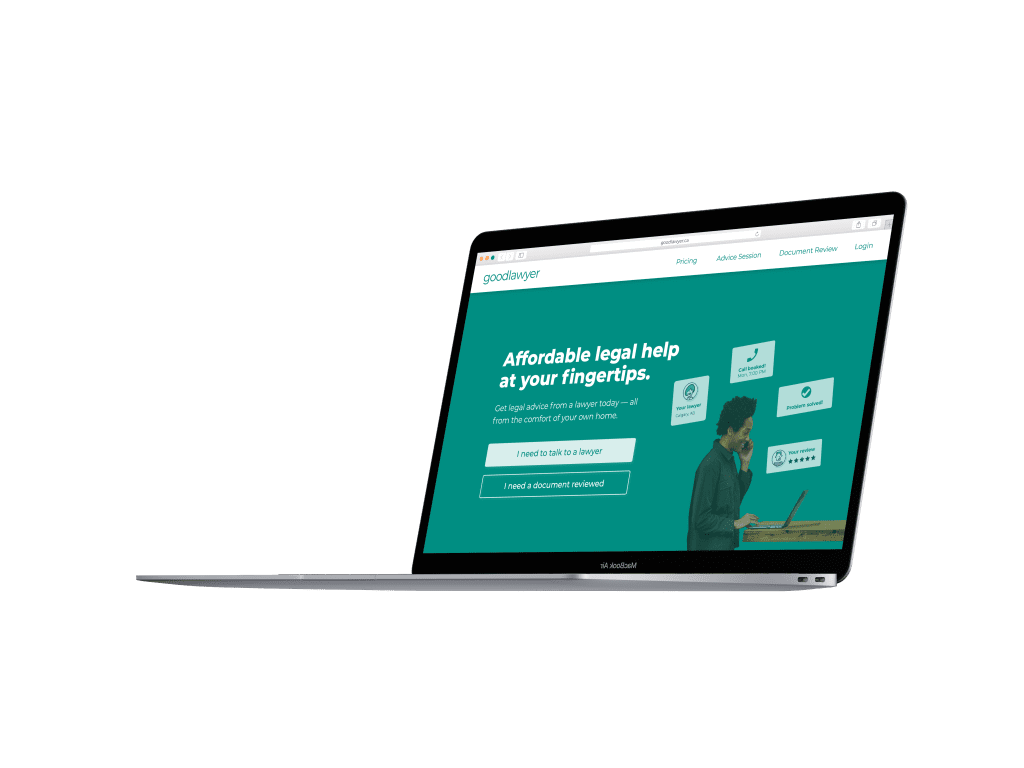[vc_row][vc_column][vc_column_text]According to a 2019 study conducted by the Business Development Bank of Canada (BDC), the rate of entrepreneurship in our country has increased by 80 percent for people under the age of 35 since 2014, and tripled for people over the age of 55 since 2000. On top of that, entrepreneurial activity among immigrants is double that of Canadian-born entrepreneurs, while entrepreneurship among women is growing at a rate that is 3.1 times faster than men. At a time where the Canadian population is feeling empowered to start businesses, many are left confused and intimidated by the legal hurdles required to build a company due to exorbitant costs and other stigmas associated with the legal industry. Enter: Goodlawyer.
CEO and co-founder, Brett Colvin, believes that everyone should have easy access to legal advice, and wants to make the experience a much more seamless, enjoyable one. A lawyer and entrepreneur, his company, Goodlawyer, was created to assist Canadians with affordable a la carte legal advice provided by a growing team of experts across the country, all while easing the bottleneck of work that so often occurs in the legal industry.
Consider Goodlawyer a matchmaker of sorts, connecting clients and lawyers together in a symbiotic relationship where both parties reap rewards. This week in Startup Spotlight, Colvin chats with Editor-in-Chief, Lance Chung, about how he created Goodlawyer, why the legal system is broken, and how they’re helping Canadian entrepreneurs and SMBs navigate COVID-19.
—————————————————————————————————————–
What is Goodlawyer?
Goodlawyer is an online platform that connects individuals and small businesses with lawyers across the country that offer micro legal services over the platform, which are services that we break down into 15 minute time slots at $39 and per page contract reviews. We do offer more services through the platform, but those are two that we focus on because we’re able to add a tremendous amount of help with them. We facilitate these bite-sized legal transactions so that we’re able to streamline the admin work for the lawyers, and so clients can access legal help that fits into their budget
Why did you decide to create Goodlawyer? What was the opportunity that you saw as an entrepreneur?
I went to undergrad and finished business school but knew I didn’t want to pursue accounting. Instead, it carried me into law school where I did a paper on access to justice and other delivery models in other jurisdictions, like the UK and Australia.
I had this idea percolating for a long time that there was a more efficient way to deliver legal help than the traditional model. I bought the domain for Goodlawyer on a whim, but I didn’t really know what I was going to do with it. At the time, I worked at the firm BLG and was there for about four years. That was when myself and one of my co-founders started brainstorming and really dug into the market analysis. We looked at everything.
In law school, students were freaking out because there weren’t enough positions available for the students coming out. In our market research, we saw that 75 percent of the population wasn’t accessing any professional help. There just seemed to be this huge divide because we were still only helping a quarter of the population as a profession. I felt like there was this huge opportunity for lawyers to be more efficient and help more people.
What is a “good” lawyer to you?
Obviously every client wants a competent lawyer, but in our mind “good” extends beyond that. Being a competent lawyer but not really caring about helping people—you wouldn’t fit into our “good” category. For us, we have really strived to sign up lawyers that fit our values, and one of those is certainly to try to help people in new ways and not be worried about the bottom dollar.




Is it too much to say that the legal system is broken or are you trying to help ease some of the bottlenecks in it?
Broken is a strong way to put it, but I don’t think it’s totally inaccurate. We have a duty as a profession to look out for society. That’s the deal that the legal profession has made with the rest of society because we’re self regulated.
We’re the only people that can provide this really important expertise that has a huge impact on people’s lives. The fact that we’re only helping a quarter of the population who can afford $300 or $400 billable hours just wasn’t a tenable situation as far as I looked at it. We have a duty to help society. I think that duty should extend a lot further than just a quarter of the population who has the pocket books to afford our services.
What would you say is the biggest challenge in how people access legal advice in Canada?
The biggest problem for the consumer is the price point, without question. Lawyers can be intimidating and a little scary to deal with sometimes, but the price is the core hindrance to most people accepting help from a lawyer.
On the other hand, lawyers also struggle because they didn’t go to law school to become entrepreneurs. You have a lot of these lawyers that come out of law school and they’re just thrust into this situation where now they have to be a competent lawyer and stay up to date on all the new things coming out, but then they also have to be an entrepreneur and run a business. That’s where we fit in, and we are trying to help those lawyers ease some of the business constraints they have, which facilitates way cheaper services for clients.
There aren’t a lot of companies that are doing what you’re doing. What hurdles do you anticipate in terms of market reaction? Do you think that people will be hesitant to access a service like this or embrace it?
Feedback so far has been pretty unbelievable, both from lawyers that have joined the platform as well as clients that have used it. There is definitely an educational part that we’re still learning how to get through. We’re figuring out the best ways to educate our prospective customers on why getting legal help is important in the first place.
When you’re helping small businesses and individuals, what are the most common questions or issues that come up?
If you asked me that a month ago, we were getting a lot of reviews for small businesses, service agreements; just general business structuring questions. We had some family law estate, and your typical consumer questions. In the last two weeks, almost everything that has been coming in the door has been COVID-19 related. We’ve been getting a ton of employment questions from both the employers as well as the employees. We’ve also been getting an influx of landlord and tenant questions as people are struggling to pay rent and trying to figure out what their options are.


How is Goodlawyer helpful for entrepreneurs and those who are just starting their businesses?
Goodlawyer is a fantastic place for an entrepreneur that is starting to think about getting their business off the ground or have some early questions. For those who are looking for guidance because they don’t really know where to start, Goodlawyer is a terrific way to get answers at a low cost. For $39 you’re able to get some direction from a lawyer and just get your ducks in a row. We’ve seen it be extremely helpful for our clients.
Our core focus right now is absolutely on the entrepreneur and the small business owner who has a lot of recurring legal needs but they don’t have a budget to keep a lawyer on retainer. Goodlawyer fits in that gap between do-it-yourself and full retainer. You can have access to a lawyer in your pocket, but you don’t have to have a multi-thousand dollar retainer to do so.
Building a great team is such an important part of running a business. How do you go about recruiting the lawyers you bring onboard?
Signing up lawyers has been pretty straightforward. I’m pretty picky with the lawyers that we bring onto the platform. We’ve signed up 50 across Canada and have a waiting list to follow.
I vet everyone that comes on. Most of the lawyers providing the micro-services have come through a connection to my legal network in Canada, which is quite expansive. I talk to everybody; most of them I’ve met in person and dug into their history and online profiles. I’m super confident with the lawyers that we’re sending clients to because I personally invited them, myself.
We source lawyers from a variety of different firms varying in scale. Our core focus from the lawyer perspective is definitely solo [lawyers] and the small firms because that’s where we can add the most value. They’re also the most amenable to affordable pricing. We found that there’s a great synergy between the lawyers that are running their own small shops and entrepreneurs.
We’re the matchmaker; lawyers don’t pay us a dime. Clients pay us a service fee to use the platform and they’re relying on us to match them with good lawyers at great prices.
What are users paying for when they use Goodlawyer’s services?
We’re the matchmaker; lawyers don’t pay us a dime. Clients pay us a service fee to use the platform and they’re relying on us to match them with good lawyers at great prices. We don’t take a penny from the lawyers. They give back to Goodlawyer by promising to provide good advice that, at these prices, are not typical in the industry. Frankly, the rates are well below their usual hourly rate. The next exciting area that we’re going to be looking at in the very near future is subscriptions for small businesses in order to provide a little more consistency.
In regards to COVID-19, how are you reacting as a company? What are the initiatives that you’ve taken on in response?
First and foremost, everybody’s working remotely, which I can tell you as a major extrovert has come with its challenges. We’ve implemented some regular Zoom calls with everybody on the team, which has been helpful. We’re fortunate we’re an online platform. We can keep working full tilt in a remote way.
We just rolled out a couple initiatives last week, starting with a COVID-19 resource page that’s getting updated daily. We also just enlisted the help of a bunch of professors to help us provide content, which will be free to access on our website. We’ve launched an initiative where Goodlawyer is paying for 15 minute advice sessions for any small business owners or other Canadians that have been impacted by the crisis.
What would you say has been the biggest challenge to building the company? How have you navigated them?
I think the biggest challenge for me has been learning how to test a product. I’ve run businesses in the past, but building something brand new is a totally different experience. The business pieces of the puzzle come pretty naturally to me. I’ve got the domain expertise, but prior to building Goodlawyer, I had no experience in a startup trying to get a product to market. It’s taken me almost two years to wrap my head around exactly what finding product market fit means and what testing really means.
The way we’ve dealt with that is just by bringing on awesome people with more experience than myself. I’m fortunate enough to bring a couple of guys on the team recently that have built startups from the ground-up successfully. They’ve been a huge source of comfort and guidance for myself and I’m excited to have those guys on board.


How do you optimize the talent you have harnessed on your team?
I don’t feel like I’m the quarterback. I feel more like I’m the general manager. I think that my biggest strength is sourcing out talent and I’ve been super fortunate to have stumbled across some people that are just rock stars.
Do good. Don’t just be good, but do good. Don’t sit on the sidelines, get involved, and do some good because the world needs more of it.
What are the values that you stand by in the work that you do and how you operate your business?
Do good. Don’t just be good, but do good. Don’t sit on the sidelines, get involved, and do some good because the world needs more of it.
What’s the bigger picture here?
With Goodlawyer, our mission is pretty straightforward, and I can trace this right back to writing that paper in law school on access to justice. The whole M.O of Goodlawyer is pretty simple—put legal help in more people’s hands.
Where do you see the potential for the biggest growth within your company and industry? What does the future look like for you?
The biggest growth I think without question is when we go to the US. Right now, we’re across the country. We are Canadian proud, especially during this crisis. That is where our entire focus is.
But ultimately, we will 100 percent be going to the US. All of the problems that we’re addressing for clients and lawyers alike in Canada are just exacerbated in the US. They are almost half of the entire global legal market, which does not include health-related legal needs. We are working to build an amazing brand here in Canada and then look to the US as our next adventure.[/vc_column_text][/vc_column][/vc_row]













